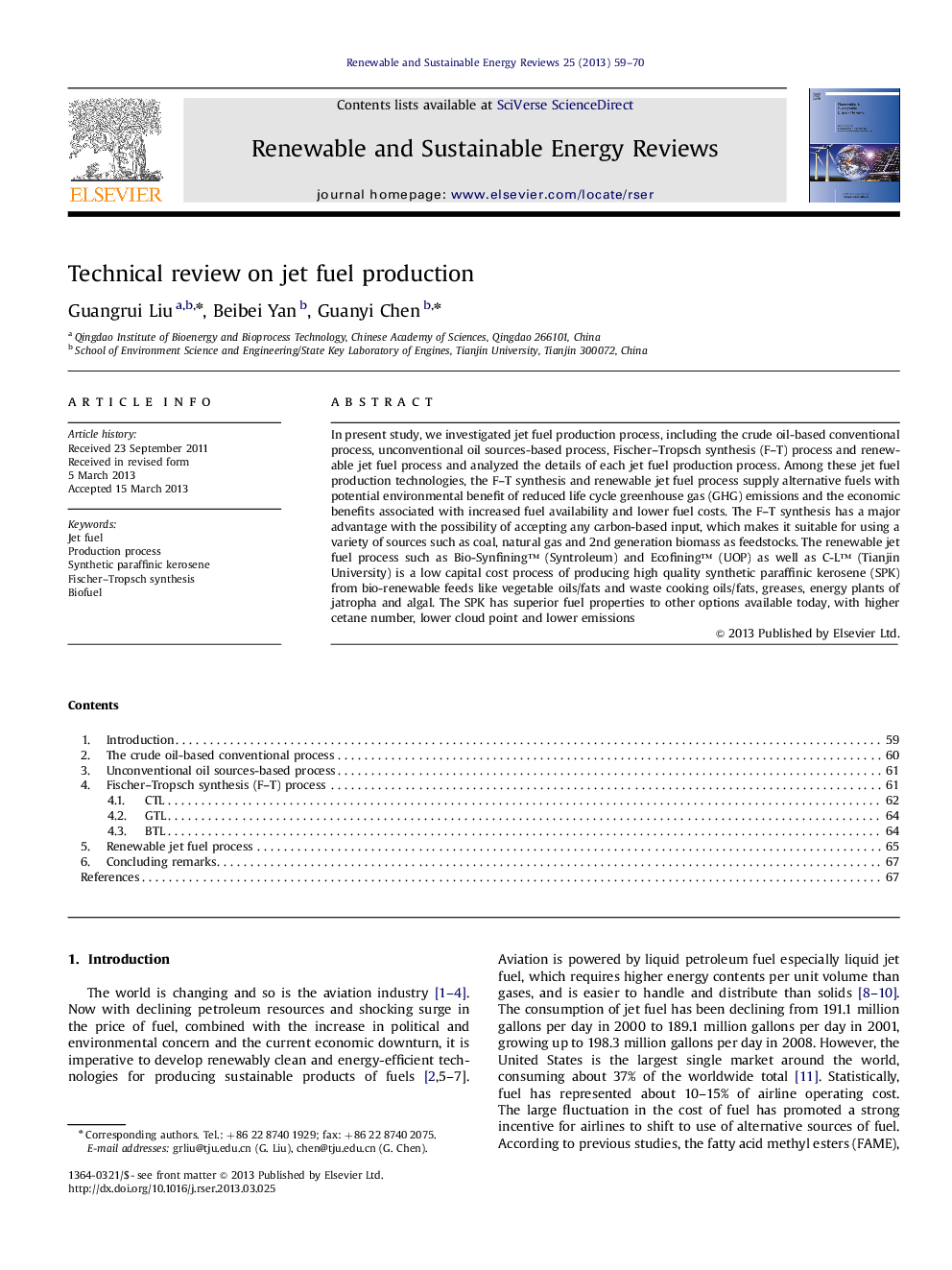| Article ID | Journal | Published Year | Pages | File Type |
|---|---|---|---|---|
| 8121387 | Renewable and Sustainable Energy Reviews | 2013 | 12 Pages |
Abstract
In present study, we investigated jet fuel production process, including the crude oil-based conventional process, unconventional oil sources-based process, Fischer-Tropsch synthesis (F-T) process and renewable jet fuel process and analyzed the details of each jet fuel production process. Among these jet fuel production technologies, the F-T synthesis and renewable jet fuel process supply alternative fuels with potential environmental benefit of reduced life cycle greenhouse gas (GHG) emissions and the economic benefits associated with increased fuel availability and lower fuel costs. The F-T synthesis has a major advantage with the possibility of accepting any carbon-based input, which makes it suitable for using a variety of sources such as coal, natural gas and 2nd generation biomass as feedstocks. The renewable jet fuel process such as Bio-Synfining⢠(Syntroleum) and Ecofining⢠(UOP) as well as C-L⢠(Tianjin University) is a low capital cost process of producing high quality synthetic paraffinic kerosene (SPK) from bio-renewable feeds like vegetable oils/fats and waste cooking oils/fats, greases, energy plants of jatropha and algal. The SPK has superior fuel properties to other options available today, with higher cetane number, lower cloud point and lower emissions
Related Topics
Physical Sciences and Engineering
Energy
Renewable Energy, Sustainability and the Environment
Authors
Guangrui Liu, Beibei Yan, Guanyi Chen,
